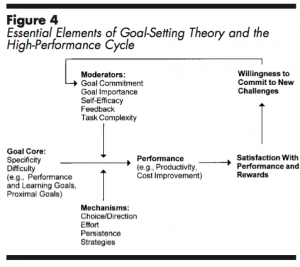
https://d267cvn3rvuq91.cloudfront.net/i/images/ai_0.jpg?sw=1500
As aforementioned in my previous blog, futuristic technology on the horizon is extremely interesting to me. In a world that is constantly adapting and changing based on globalization, better ways to analyze information and capitalize on it is constantly on the minds of most executives. Perhaps one of the most exciting advancements in technology recently is the spark of interest in artificial intelligence, and this is especially true in the Healthcare industry. In an article from Wired.com, Bahar Gholipour states that over 2.5 million scientific papers are published each year, and this massive stockpile of information is largely unavailable to most scientists simply due to the immensity of their search. Desperate to keep up to date on current medical information and findings, most scientists would welcome a technological assistant with perfectly acute memory and information. This is where a company named Iris comes in, creators of an artificial intelligence system designed for hospitals and other medical professions.
Iris developed their artificial intelligence system in order to quickly analyze data and pull out the relevant information without having to individually search through each specific document to find what you are looking for. This is particularly useful for doctors as patients typically have a complex medical history that their doctor has to examine, and artificial intelligence would simply red flag any potential dangers or interactions. And Iris is not the only company to capitalize on artificial intelligence, with IBM using “Watson for oncology” to keep cancer doctors up to date on current treatments by sifting through patient information and medical journals. The vast amount of scientific data out on the web makes it very difficult to diagnose and treat a disease, with some doctors that specialize in a specific field still finding it difficult to stay current with all advancements in their specialization. Artificial intelligence mitigates this problem, increasing the accuracy of information almost instantaneously.
While discussing AI, it is very difficult not to consider the future of the technology and how artificial intelligence will continue to develop. Anita Schjøll Brede, the CEO of Iris, explained her version of what the future of AI looks like. Brede predicts that in just three years, Iris will release a new version of its current form, having the capability to remember the information you read Anita Schjøll Brede while offering new suggestions that might aid you. Even more surprising is Brede’s prediction that in ten years, the AI system will be so sophisticated that it will figure problems out itself based off of previous data and readings. According to medicalfuturist.com, Craig Venter, a leader of the Human genome Project, is utilizing artificial intelligence to analyze a individuals DNA in order to develop an algorithm that could allow scientists to hand select a patients physical features.

http://www.tedxarendal.com/wp-content/uploads/2016/07/Schjoll_Brede_600px.jpg
In conclusion, if AI can be produced at an affordable rate for standard hospitals, the medical industry will become far more efficient and knowledgeable, able to draw upon millions of sources at once. AI will also change the nature of producing pharmaceuticals that generally takes years and can cost millions of dollars, allowing researchers to find the correct medicine for a patient at a far quicker pace, potentially saving thousands of lives and saving massive appropriations of funding.
Sources:
http://medicalfuturist.com/artificial-intelligence-will-redesign-healthcare/












